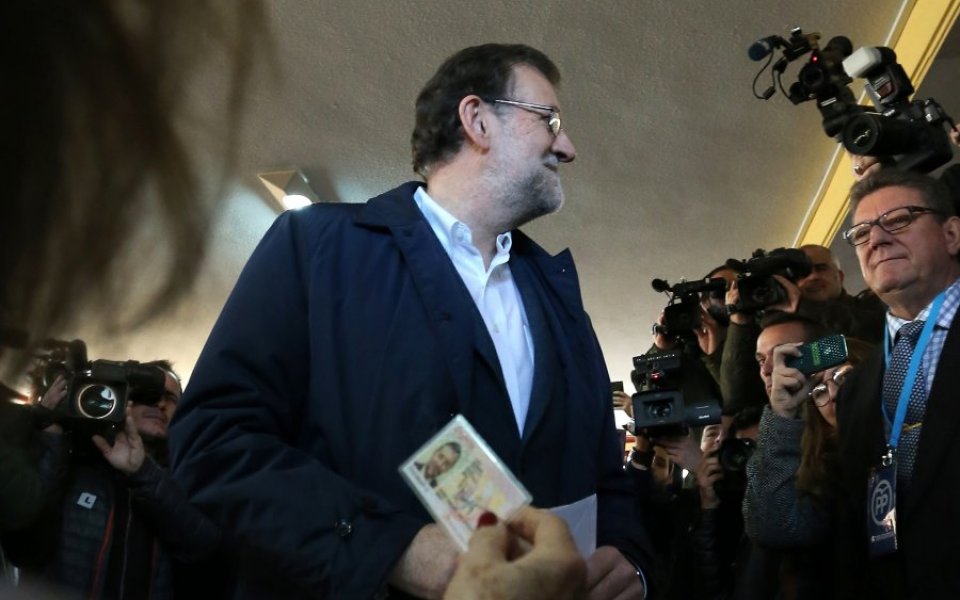Spain in political limbo as Mariano Rajoy loses majority in general election and Podemos gains ground

Spanish Prime Minister Mariano Rajoy's centre right People's Party has won the country's general election, but will struggle to form a majority even in coalition, according to the latest results with 90 per cent of the vote counted.
The country now faces a period of political uncertainty during while coalition negotiations will take place.
The PP are on track to win 122 seats, down from 186, while the main opposition socialist party could expect 91, the lowest in its history. Newcomers Podemos, a far-left party, and Ciudadanos, a centre party, are on course to win 69 and 40 seats, respectively. The result marks a major shift in Spanish politics away from the two traditional parties of PP and PSOE.
" Spain has voted to change the system…today a new Spain has been born," said Podemos leader Pablo Iglesias.
Spain elections – PP + PSOE:
1989: 65.4%
1993: 73.6%
1996: 76.4%
2000: 78.7%
2004: 80.3%
2008: 83.8%
2011: 73.4%
2015: <50%#20D— Alberto Nardelli (@AlbertoNardelli) December 20, 2015
https://twitter.com/robertoroblesf/status/678525576223723520
The results show that pollsters underestimated the surge of Podemos, a far-left party that was set up two years ago. It wants to boost public spending and hike taxes on high earners. The party recent dropped its some of its more radical suggestions such as public debt restructuring.
The poll also shows that neither a PP-Ciudadanos coalition or PSOE-Podemos coalition would capture of majority of Spain's 350 seat parliament. It means the country faces a tough period of political uncertainty while negotiations take place to establish a grand coalition or two parties agree to try and form a minority government. If a government is not formed in two months, new elections will be called.
https://twitter.com/JeremyCliffe/status/678666849039613952
The rise in popularity of Podemos and Ciudadanos have been attributed to growing voter discontent within the country, where unemployment remains high – around half of all 16-24 year olds are unemployed compared with just 13.5 per cent in the UK.